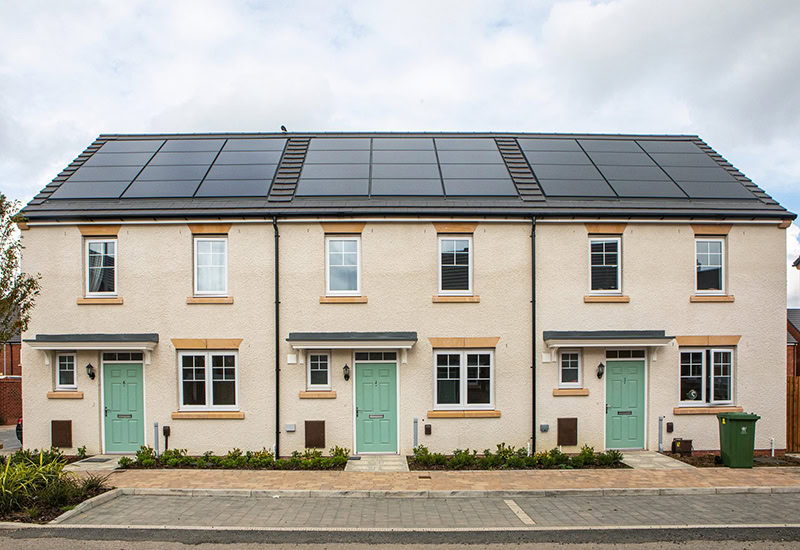MH:EK explored the role hydrogen could play in a decarbonised energy future.
The project trialled the world’s first smart hydrogen hybrid heat pump, a hybrid heating system combining a hydrogen boiler with an air source heat pump and smart controls from Passiv.
The project showed that a hybrid heat pump system can provide up to a 90% reduction in carbon emissions when operated with smart controls.
The MH:EK (Milford Haven Energy Kingdom) project explored the role hydrogen could play in a decarbonised energy future. The project focussed on developing diverse, local markets to support the transition to hydrogen and renewables for the cluster of major energy infrastructure along the Milford Haven Waterway. The project was led by Pembrokeshire County Council, with Passiv, Worcester Bosch and Spire Renewables as project partners.
Achieving the UK target of net-zero carbon emissions by 2050 will require a transition away from fossil fuels such as natural gas to lower emission energy sources such as hydrogen. Large scale hydrogen markets may provide essential cross-vector system balancing and inter-seasonal energy storage for an energy system dominated by the UK’s abundant renewables. This gas to hydrogen transition may be built out from the UK’s critical natural gas infrastructure. The Milford Haven Waterway is at the centre of nationally important energy infrastructure, with major energy related investment underway, targeting efficiency and decarbonisation.
MH:EK trialled the world’s first smart hydrogen hybrid heat pump, a hybrid heating system combining a hydrogen boiler with an air source heat pump and smart controls. The system, installed at a Port office, uses the Passiv Smart Energy Platform and hybrid heat pump controls to intelligently switch between the heat pump and boiler to make sure the required temperature in the building is met in the most carbon-efficient way and at lowest possible cost. Switching can also take place to minimise carbon emissions across the electricity and gas system and avoid electricity demand going above the capacity of the local network.
Over the course of the trial, the hybrid heating system was tested with a 20% hydrogen blend and on 100% hydrogen. Successful hybrid operation was demonstrated, with the hydrogen boiler providing a valuable source of rapid supplementary heating.
The project showed that a hybrid heat pump system can provide a 50-65% reduction in carbon emissions when operated with smart controls. This saving would increase to 60-70% if the boiler were operating on a 20% hydrogen blend, and would further increase to a 90% carbon emission reductions savings if it were running on 100% hydrogen.


